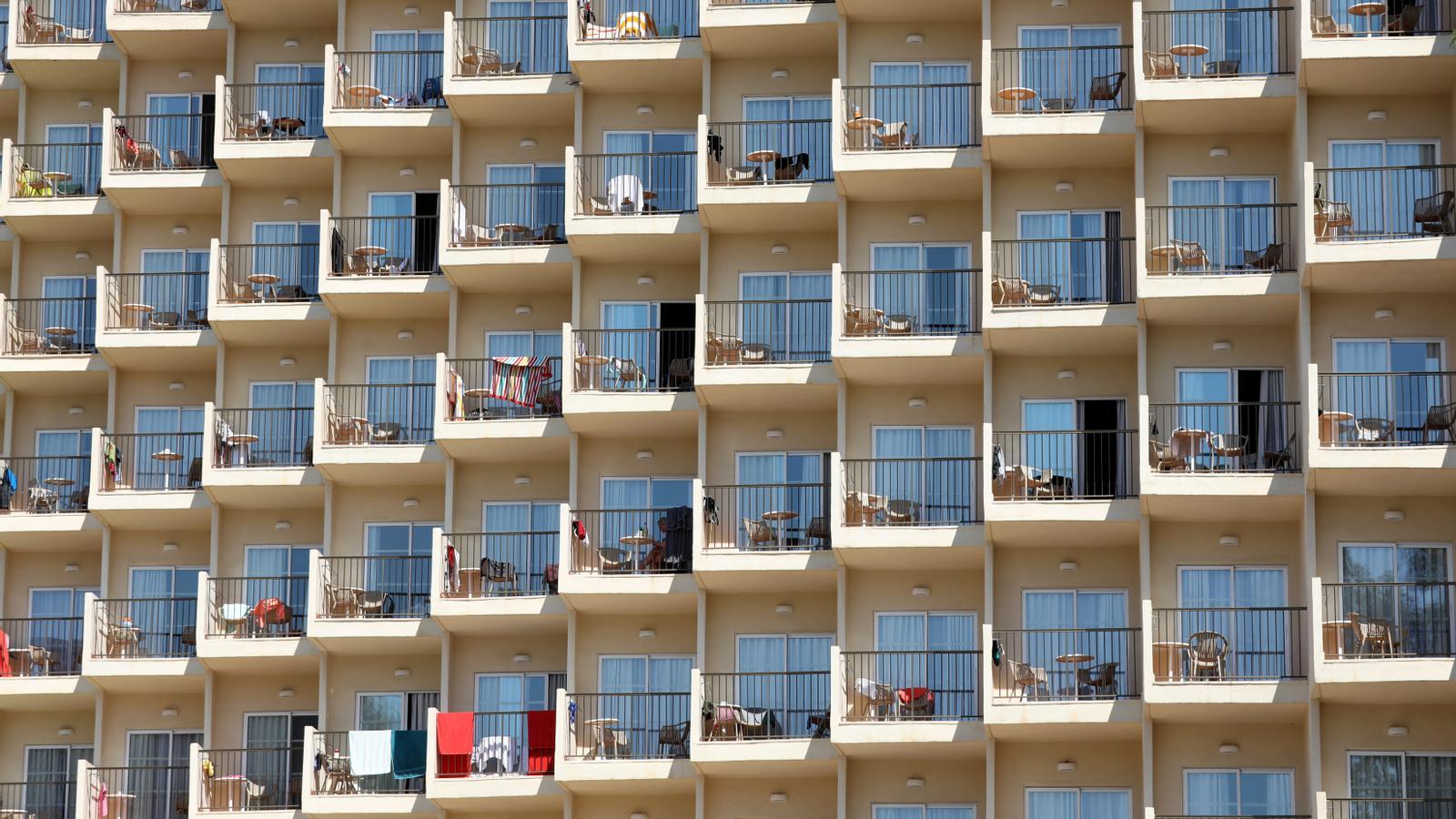The fight against illegal tourist rentals puts the spotlight on hotel overcrowding.
They claim that the Consell de Mallorca has stopped conducting campaigns to check for overbooking in hotels.


PalmHoteliers point to illegal tourist rentals as one of the main culprits of overcrowding in the Balearic Islands. In fact, the Consell de Mallorca—which has jurisdiction over tourism regulations—has focused its efforts on combating this activity. The inspection plan prepared by the island's authority for 2025 directs 75% of its actions toward illegal tourist offerings. Twenty percent of the inspections are geared toward responding to citizen complaints and claims, while only the remaining 5% focus on potential irregularities in the legal offering, such as hotel overcrowding, circularity, excess tourism, and the verification of the 3% local product.
The pursuit of illegal rentals, linked to pressure from hoteliers against this activity, overshadows other aspects that also contribute to the overcrowding of tourism in Mallorca, such as the overcrowding of establishments. Sources from the island's institution assure that "no campaign to control overcrowding in Mallorca's hotels" has been carried out this year. They also add that a plan was prepared in 2024 to address this issue, which included 80 inspections, of which "only 40 were carried out due to pressure from the sector."
Opposition and Consell sources explain that the island's Tourism Minister, Marcial Rodríguez, "has an unwritten agreement with hoteliers" to focus on the supply of illegal tourist rentals and, in this way, not control theoverbooking of hotels. However, the Tourism Department of the Consell de Mallorca denies this and assures that "among the actions carried out to control the legal supply, overcrowding is monitored." They also add that in 2024, 2,122 inspections were carried out on the legal supply, although they do not break down how many were carried out in hotels due to this problem, nor do they offer data on how many were carried out in 2025 to control overcrowding.overbooking. However, they insist that "the vast majority" of the visits took place in hotels. Meanwhile, sources from the Hotel Business Federation of Mallorca (FEHM) have told ARA Baleares that they have "no idea" how many inspections the Consell de Mallorca has carried out this year to control overcrowding in the sector.
To justify that the Consell de Mallorca is not only pursuing illegal tourist rentals, sources from the island institution's Tourism Department emphasize that Rodríguez has split the administrative unit in charge of inspections with an area dedicated to legal rentals—with 10 inspectors—and another focused on non-legal rentals. Sources from the Consell also assert that the 2,122 inspections carried out in 2024 were to "register hotels and change categories," among other things, but "not to control overcrowding." They also emphasize that visits to address this issue "are always carried out through campaigns" and insist that "if they were carried out, they would find problems, just as they have always done in campaigns in previous years." They point out that until 2023, instead of conducting 80 visits to hotels to monitor overcrowding—as was the case last year—more than 200 inspections were carried out, and overcrowding was "always" detected.
Is there overbooking?
The Government assures that "under no circumstances" is it aware of overcrowding in Balearic hotels, according to the Minister of Tourism, Sports, and Culture, Jaume Bauzá. The Executive is also focusing on illegal tourist rentals and boasting about the 20 million euros in Sustainable Tourism Tax (ITS) that the Ministry of Tourism has given to the island councils so that "they can increase inspection work and combat this situation."
Of these 20 million euros, the Mallorca Council requested 4.3 million euros—the Government has granted them. With this amount, the island institution indicates that it has invested "in personnel, in strengthening teams, and in improving the fight against illegal tourist rentals," according to sources from the Council.
